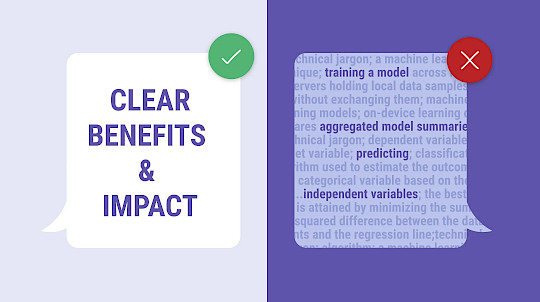
Privacy Enhancing Technologies Workshop
During December 2021 Meta’s Privacy & Data Public Policy Team and external privacy experts from academia, industry and elsewhere workshopped some of the issues around PETs.
While the term is not new to many working in the area of data privacy, there is still a great deal to learn around the transparency, accountability, and assurance that PETs offer. PETs are based on cryptographic and statistical techniques, and while there is currently no universally accepted definition of which technologies and governance methods constitute a PET, the three main methods are data-shielding, data-altering, and computation-altering.
The Data Dialogue was a mixture of talks and interactive workshops. Each aimed to tease out some of the tensions between the value of data and ensuring users are protected. This was done around two hypothetical scenarios involving a train company and a dating app.
There were a number of thought-provoking takeaways from the session, especially around how sensitive data can deliver the highest value when planning a new train service, but also the most risk when using it. In the coming months, the participants will continue to look at how PETs can be used, which we will cover in future issues of this newsletter.



